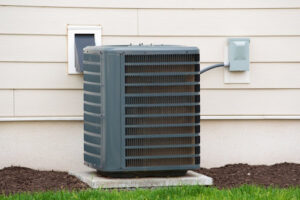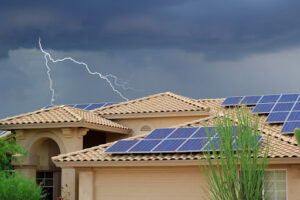Tankless water heaters in Houston, TX, have gained popularity in recent years due to their energy efficiency and on-demand hot water capabilities. Unlike traditional water heaters with large storage tanks, tankless water heaters provide hot water as necessary, without the need for a bulky tank. Learn how tankless water heaters work and why they are becoming a cost-effective and energy-saving choice for many homeowners.
The Basics of Tankless Water Heaters
Tankless water heaters, also known as on-demand or instantaneous water heaters, operate on a simple yet effective principle. When you turn on a hot water tap in your home, whether it’s for a shower, washing dishes, or anything else, cold water flows into the water heater through a pipe. Inside the unit, there are electrical resistance heating coils or a gas burner, depending on the type of system you have — either an electric tankless water heater or a gas tankless water heater. This is where your water heats up before it reaches the faucet.
Electric Tankless Water Heaters
Electric tankless water heaters use electrical resistance heating coils to heat the water. As the cold water flows over these coils, it gets rapidly heated, and hot water is delivered to your tap. The heating process is controlled by a front-facing panel that allows you to adjust the temperature according to your preference. This type of tankless water heater is known for its efficiency and is particularly popular in areas where natural gas is not readily available.
Gas Tankless Water Heaters
Gas tankless water heaters, on the other hand, utilize a gas burner to heat the water. They have a gas supply line and a gas valve to control the heating process. When you turn on the hot water tap, a sensor detects the flow of water and activates the gas burner. The burner ignites and heats a coil or heat exchanger, which in turn heats the water as it passes through. Gas tankless water heaters are known for their rapid heating and high flow rates, making them a popular choice for homes with high hot water demand.
The Benefits of On-Demand Hot Water
The beauty of tankless water heaters lies in their ability to provide hot water on demand. Unlike traditional storage tank heaters, which constantly heat a large tank of water, tankless water heaters only heat water when you need it. This means that there’s no need for a big storage tank, and you won’t run out of hot water, even during long showers or while running multiple hot water appliances simultaneously. The tankless heater works by sensing the flow of water and heating it up instantly, ensuring a constant flow of warm water.
Energy Efficiency and Cost Savings
One of the biggest benefits of tankless water heaters is their energy efficiency. Since they only heat water as it’s needed, they don’t waste energy keeping a large tank of water hot all the time. This can lead to significant savings on your energy bill over time. Additionally, tankless water heaters are more compact and take up less space in your home compared to traditional storage tank heaters.
Comparing Tankless Water Heaters to Traditional Water Heaters
To understand the advantages of tankless water heaters more clearly, let’s compare them to traditional water heaters:
Hot Water Supply
Traditional water heaters store and continuously heat a large amount of water, which can run out during periods of high demand. In contrast, tankless water heaters provide hot water on demand and never run out.
Space
Tankless water heaters are compact and can be installed in small spaces, such as under sinks or in closets. Traditional water heaters with storage tanks are much larger and require dedicated storage space.
Energy Efficiency
Tankless water heaters are highly energy-efficient because they only heat water when needed. Traditional water heaters can continuously lose heat, leading to higher energy consumption.
Cost Savings
While tankless water heaters may have a higher upfront cost, their energy efficiency can result in long-term cost savings on energy bills. Traditional water heaters may be cheaper to install but can be more expensive to operate.
Maintenance
Tankless water heaters require less maintenance than traditional heaters with storage tanks. Regular maintenance includes descaling to prevent mineral buildup and routine checks by a professional plumber to ensure optimal performance.
Lifespan
Tankless water heaters often have a longer lifespan than traditional heaters. While traditional heaters may last 10-15 years, tankless heaters can last 20 years or more with proper care.
How Tankless Water Heaters Save Energy
Tankless water heaters are designed with energy efficiency in mind. Here’s how they achieve this:
- On-Demand Heating: As mentioned earlier, tankless water heaters heat water only when you turn on a hot water tap. This eliminates the need to constantly maintain a large tank of hot water, reducing energy waste.
- No Standby Heat Loss: Traditional water heaters keep a large volume of water hot at all times, leading to standby heat loss — the heat lost as hot water sits in the tank waiting to be used. Tankless water heaters eliminate this heat loss.
- High Thermal Efficiency: Tankless water heaters have a high thermal efficiency rating, which means they convert a significant portion of the energy input into heating the water. This efficiency results in less wasted energy.
- Energy Star Certification: Many tankless water heaters are Energy Star certified, indicating that they meet strict energy efficiency guidelines set by the Environmental Protection Agency (EPA). Choosing an Energy Star-rated unit can further increase your energy savings.
Flow Rate and Sizing
When selecting a tankless water heater for your home, it’s crucial to consider the unit’s flow rate and ensure it meets your household’s hot water demands. The flow rate is the amount of hot water the unit can deliver per minute, typically measured in gallons per minute (GPM). Different models have varying flow rates, so it’s important to choose one that can provide enough hot water for your simultaneous hot water needs, such as showers, laundry, and dishwashing.
The size of the tankless water heater also matters. A unit that is too small may struggle to meet your hot water demands, while an oversized unit may consume more energy than necessary. To determine the appropriate size, you should consider factors such as the number of hot water appliances in your home, the temperature rise needed to reach your desired hot water temperature, and the flow rate required.
Installation and Venting
The installation of a tankless water heater requires careful consideration of several factors:
Location
Tankless water heaters can be installed indoors or outdoors. Indoor units are typically mounted on a wall, while outdoor units are installed on an exterior wall. The choice of location depends on factors like climate, available space, and local building codes.
Venting
Proper venting is essential for gas tankless water heaters to remove exhaust gases safely. Venting can be achieved through direct venting (vent pipe through an exterior wall) or using a concentric venting system (a single vent pipe with an inner exhaust and outer air intake pipe).
Gas Line and Electrical Requirements
Gas tankless water heaters require a gas supply line, while electric units need access to electrical wiring. Ensure that your home’s gas line or electrical system can support the tankless water heater’s requirements.
Plumbing
Plumbing connections need to be made to supply cold water to the unit and distribute hot water to the fixtures. Proper sizing and connections are crucial for efficient operation.
Professional Installation
It’s highly recommended to have a professional plumber or HVAC technician install your tankless water heater. They can ensure that the unit is correctly installed, vented, and connected to the gas or electrical supply.
Maintenance and Care
While tankless water heaters require less maintenance than traditional water heaters, some routine care is essential to keep them operating efficiently:
- Descaling: Depending on your water quality, mineral buildup (scaling) can occur inside the unit’s heat exchanger over time. Descaling may be required periodically to prevent reduced efficiency and potential damage. Consult your Houston tankless water heater experts at Universal Home Experts on descaling procedures.
- Water Filter: Installing a water filter on the cold water supply line can help reduce sediment and mineral buildup, extending the life of your tankless water heater.
- Regular Monitoring: Periodically check for any error codes or unusual behavior on the unit’s control panel. If you notice any issues, consult the user manual or contact a professional plumber for assistance.
- Professional Inspection: It’s a good practice to have a professional plumber inspect your tankless water heater annually. They can perform a thorough check of the unit, including gas lines, venting, and safety mechanisms.
Dealing with Common Issues
While tankless water heaters are known for their reliability, occasional issues may arise. Here are some common problems and their solutions:
Slow Flow or Low Hot Water Temperature
If you experience reduced flow or lukewarm water, it may be due to an inadequate gas supply or incorrect temperature settings. Consult a professional to address these issues.
Water Flow Interruption
Tankless water heaters require a minimum flow rate to activate. If you experience intermittent hot water during low-flow activities like shaving or handwashing, consider installing a low-flow aerator on the faucet or showerhead.
Cold Water Sandwich
Some tankless water heaters may experience a phenomenon known as a “cold water sandwich,” where a burst of cold water occurs between periods of hot water. This can be mitigated by adjusting the temperature settings or installing a mixing valve.
Ignition Failure
Gas tankless water heaters rely on ignition to heat water. If the ignition fails, there may be issues with the gas supply, the ignition system, or the unit’s venting. Consult a professional to diagnose and resolve the problem.
Mineral Buildup
If you notice reduced hot water flow or a drop in temperature, mineral buildup may be the culprit. Descaling the unit, as mentioned earlier, can help resolve this issue.
The Future of Tankless Water Heaters
As technology continues to advance, tankless water heaters are likely to become even more efficient and accessible. Innovations in materials, design, and energy-saving features will further enhance their performance and make them an attractive option for homeowners seeking energy-efficient solutions.
Enjoy On Demand Hot Water With Universal Home Experts
Tankless water heaters offer an energy-efficient, cost-effective, and space-saving solution for hot water supply. Whether you choose an electric or gas tankless water heater, you can enjoy the benefits of on-demand hot water and lower energy bills. Installing a tankless water heater can be a smart choice for homeowners looking to save money, reduce their environmental footprint, and ensure a constant supply of hot water whenever they need it. By understanding how tankless water heaters work, you can make an informed decision about whether they are the right choice for your home.
Are you ready to experience the future of hot water supply in your home? Universal Home Experts is here to help you make the switch to tankless water heaters and unlock a world of energy efficiency, cost savings, and convenience. Contact us today to schedule a tankless water heater installation in Houston, TX, and discover how it can transform your hot water experience.



